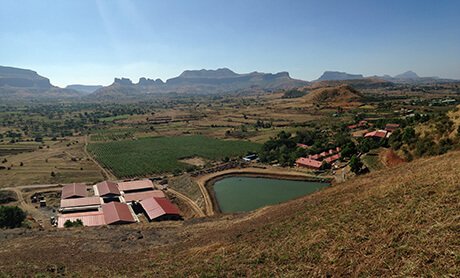Case taking is an art. It is a science and getting the information out of the patient is a skill that develops though experience but there are certain guidelines.
Taking a case is actually receiving the case and understanding what are patients sufferings and the feeling and the intensity of their problem. What we ask and how we ask about the complaints is very im portant.
Name, age, marital status, occupation, address, phone, e mail is the basic data needed for communication and legal purpose. We will need to know their occupation. We will try and get more details, i.e. what is he doing in the office all day? What is his daily office routine? Is he sitting? Is he a worker exposed to fumes which cause his asthma? There is often a co - relation of t he complaint to the occupation. Also in the basic data we can take note of their height and weight.
What is his chief complaint? We must note the order at which it first started using the ‘O D and P’, origin, duration and progress. It may have had a slow origin or an accidental one such as a fall or acute start of complaints. We need to know if there has been a break in its duration, e.g. if it only occurs in the winter. Also we need to know its progress, where it started, i.e. if it wa s first a trouble in the lower back which progressed to sciatica. Also progress means to understand the increase or decrease in the intensity of the complaints.
Find out the history of past and the outcome of the same (cure, recovery, disability, controlled with medication etc. ). Spend 2 - 3 minutes finding out about illnesses he has been suffering from in the past, operations, infectious diseases since childhood, accidents.
Question him on his personal history, daily routine, exercise, appetite, thirst, bowel movements, urine, sleep, addictions, medication and habits. Note a few details and try to find out if anything of it is related with the complaints of the patient.
Note the family history. What diseases have they been suffering from? Note the cause of death of any close family member.
Try and know his mental or emotional state. As this is very persona, you need to be cautious. We may be able to find things out via the family. It is best to avoid direct questioning; we can o ften tell from the face of the person; we can judge if they want a certain question or not.
How we ask these questions is important and can win us more patients. Remember they are taking your case at the same time and asking themsel ves is this Doctor fit to treat me? Do not have any fixed ideas about the patient in your mind; try to have the mind blank so as not to be biased. Don’t jump to conclusions before knowing the complete facts of the complaints/patient.
A diagnoses/conclusi on needs to be based on the following information:
Information from relatives and friends of the patient can be helpful. Patients can sometimes hide things e.g. addiction. some say they never smoke or sometimes the patient is unaware of the complaints, eg. snoring
Speak less and listen more. Don’t interr upt him. He may forget what he wanted to tell you. As far as possible, unless he is digressing completely, let him talk. Taking a history is an art. If he misses something you need to know, you can ask him at the end.
When he says certain things show atte ntion to him. Avoid playing with things whilst listening; don’t distract and irritate. Show you are listening; try and have some rapport. Show respect for the feelings/emotions of the patient and respond according to it.
Don’t ask leading questions, or th e questions which can be answered as YES or NO. Frame the questions such that the patient has to talk more and more about it. While receiving a case you should be speaking less and the patient speaking more.
You can ask direct questions at the end if you want any specific info rmation you have not received f r o m him.
Look carefully at past reports as the patient has invested time, energy and money to find out this information. If you don’t understand the reports, you can consult the experts in that field an d find out what the investigation says.
Body language is important. They need to have faith and confidence that you can reduce their suffering. Some just feel better by talking about their problems. This reduces their mental agony. There should also be c onfidence that their problems will not be discussed with anyone else.
Give sufficient time to the patient, especially as he is going to pay you; if not you may l ose him. He should have no questions when he leaves. Take off your watch! Learn how to develo p patience; the patient should be satisfied and confident in you. If it is relevant, don’t hurry him.
Don’t blame other practices such as modern medicine. Talk about the advantages of Yoga but don’t criticize other practitioners. Talk what best you can offer instead of talking bad/ criticizing other healers/treatment.
Phone - +91-9822770727
E-mail - yoga@yogapoint.com or yogapoint108@gmail.com

Yoga Vidya Dham, Kaivalya Nagari,
College Road, Nashik - 422005.
Maharashtra, India.
Phone - +91-9822770727 (for courses in ENGLISH)
+91-253-2318090 (For courses, in HINDI or MARATHI)
(Please call during 9.00 AM to 5 PM Indian Time)
E-mail - yoga@yogapoint.co or yogapoint108@gmail.com
Village Talwade, Trimbak, Nasik
Maharashtra,India.
Phone - +91-9822770727
E-mail - yoga@yogapoint.com or yogapoint108@gmail.com